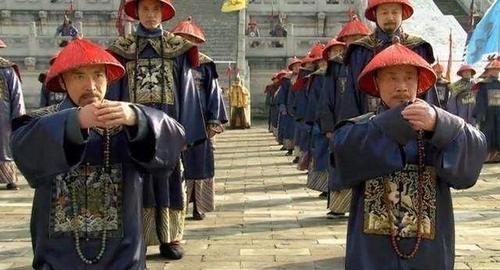People often say, "Each does his or her own job, and each does his duty." "In daily life, how to complete the work that needs to be handled in an orderly and efficient manner is a very important thing. Whether in ancient times or today, a reasonable system can eventually make things more effective with half the effort, and this is also a measure that can greatly improve social productivity.

In a bygone era, under the influence of imperial power, officials were the core of the management system. No matter how good a monarch is, he cannot fully grasp the information of the whole world, especially the details. This situation is doomed to the need for an effective system for any dynasty, so as to truly achieve the "national peace and civil security" that the emperors desire in their hearts.
Since Qin Shi Huang unified the Six Kingdoms in 221 BC, every monarch has been exploring this field. However, during the Qin and Han dynasties, due to the existence of princes and sub-feudalism, the centralization of power did not meet the needs. Such defects brought various tribulations to the world, and it was not until 581, after Emperor Wen of Sui established the Sui Dynasty, that the emergence of the "three provinces and six ministries system" finally solved this huge problem.
Throughout the entire feudal history, the three provinces and six ministries are of extremely important significance. According to the Book of Sui, Emperor Wen of Sui summed up the experience left by the emperors of the previous dynasty and abolished the official positions obtained from the Zhou Li. With the three provinces of "Zhongshu, Shangshu, and Menxia" as the core, it is divided into six departments: "Etiquette, Officials, Households, Soldiers, Criminals, and Workers", combined with talented officials, and handles various domestic affairs in the way of "performing their duties" to share the worries and difficulties of the monarch.
Such a system of cross-era significance has still gained great recognition in subsequent dynasties. In the description of the New Book of Tang, due to the weakening of the power of the Tang Dynasty, the three provinces of the Tang Dynasty have always been under the oppression of the emperor and tend to be united. Especially after the years of war and chaos in the Five Dynasties and Ten Kingdoms, this system of dividing power has been greatly impacted. By the time the Song Dynasty was founded in 960, the three provinces had ceased to exist in name only.
However, no matter how this "upper level" division of power changes, another component of this system, the "six ministries", has always been an important role in the court. It is written in the Song Huijiao that the status of the three provinces has been completely hollowed out in the game between the emperor and the chancellor, but the six parts directly related to the world's dynastic politics have never changed. But what people don't know is that even among these six functional departments, there is a difference in status.
Among the six ministries, the Gongbu Shangshu can be said to be the most unpopular position. And the reason for this, experts say, look at what they manage to know. First of all, as the most important officials, they directly determine the selection of officials and talents; secondly, the household department is in charge of the economy, and the military department is in charge of the military force, which is the foundation of a dynasty, and the status is self-evident. The ministry in charge of ceremonial affairs and the punishment department in charge of punishment are the most fundamental existences of feudal society, and they cannot be shaken from both ideological and social points of view.
The Ministry of Works, on the other hand, is responsible for engineering matters, and from another point of view, they master the most core technology of this dynasty. In today's society, science and technology are a country's greatest competitiveness, but why is the Ministry of Works, which can be called a scientific research institute, so unbearable? All this is due to the hierarchical division of "scholars, peasants, industrialists, and merchants" in feudal thought.
With the exception of a very few open-minded emperors, the vast majority of monarchs of dynasties were very indifferent to the technical level. From the perspective of emperors and nobles, money and military affairs were the absolute lifeblood. Those who tinker with machinery and other crafts all day long will be regarded as "ordinary people" and discriminated against by the court. This concept is very obvious throughout feudal history, and because of this, there are too many sad stories of backwardness and beatings in the subsequent days.